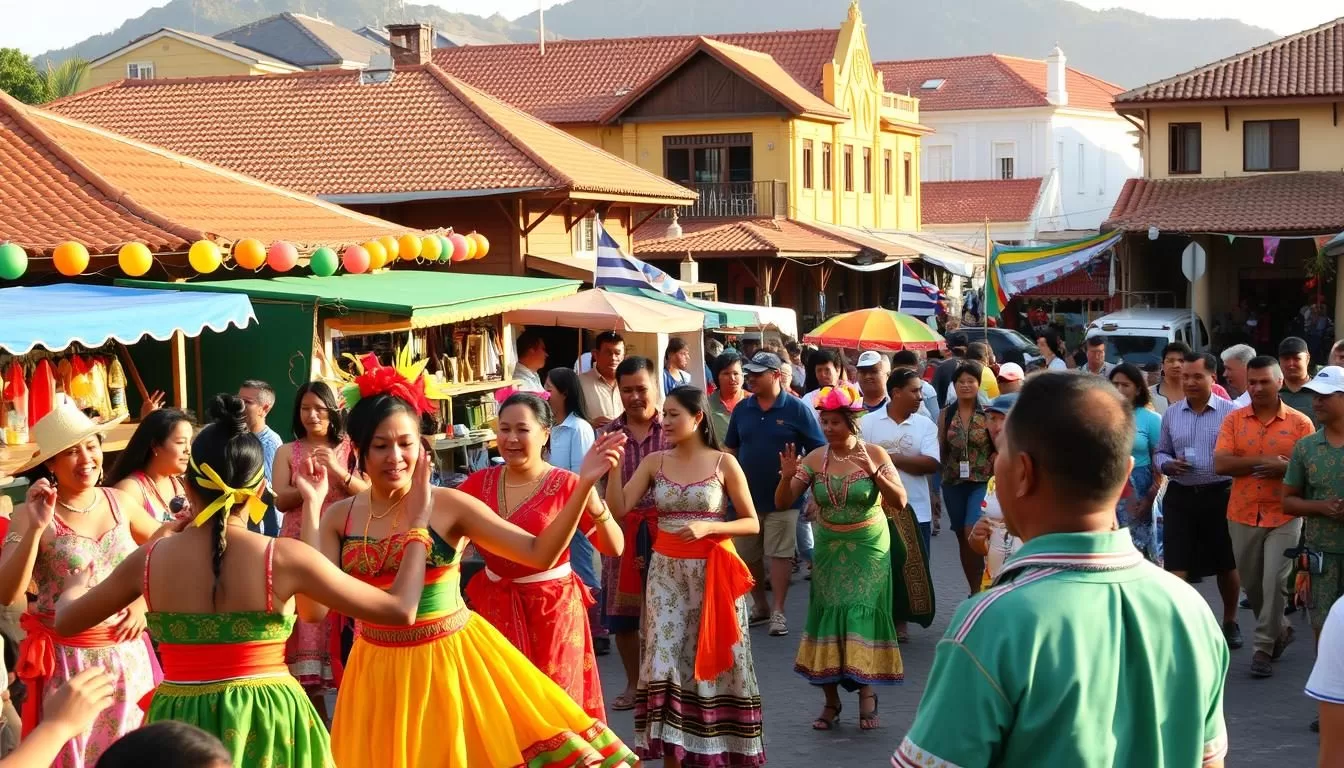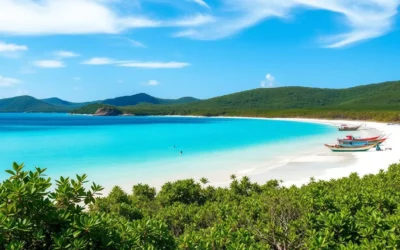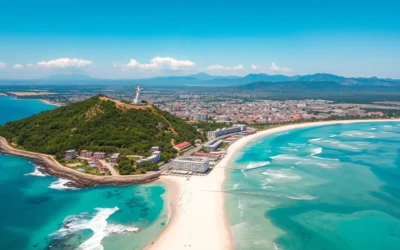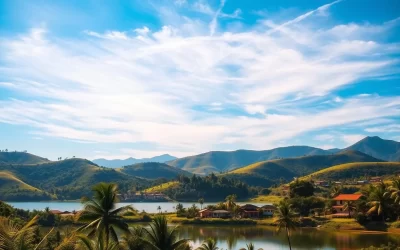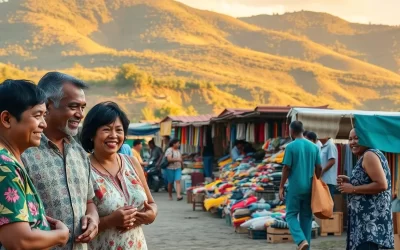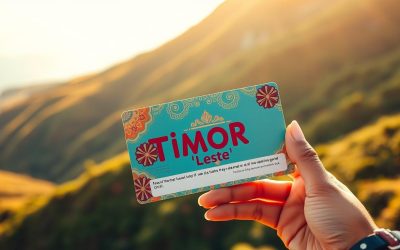As you plan your trip to Timor-Leste, the country’s vibrant festivals are a great place to start. The unique cultural heritage of this Southeast Asian nation is showcased through its colorful and diverse celebrations, blending Portuguese colonial influences with indigenous traditions.
Timing your visit around these festivals offers an authentic and immersive travel experience. You’ll have the opportunity to connect with the local people and understand their cultural values. With a visa in hand, you’re ready to explore this young nation for several days, immersing yourself in the country’s rich cultural tapestry.
By experiencing Timor-Leste’s festivals, you’ll gain a deeper understanding of the country’s history and traditions. This is a chance to witness the unique cultural expressions that make Timor-Leste a fascinating destination.
Discovering Timor-Leste: Southeast Asia’s Hidden Gem
Located at the crossroads of Southeast Asia and Oceania, Timor-Leste is an island nation with a rich history and diverse cultural practices. As one of the world’s newest countries, Timor-Leste gained independence from Indonesia in 2002, marking a new chapter in its journey.
Geographic Location and Cultural Identity
Timor-Leste is situated in a unique geographic location, straddling the boundary between Southeast Asia and Oceania. While most countries consider it part of Southeast Asia, the Timorese identify themselves as being part of Oceania. This blend of influences has resulted in a culturally diverse nation with distinctive traditions. The country’s geographic isolation has preserved many indigenous cultural practices, which are showcased during festivals, making it an attractive destination for cultural enthusiasts.
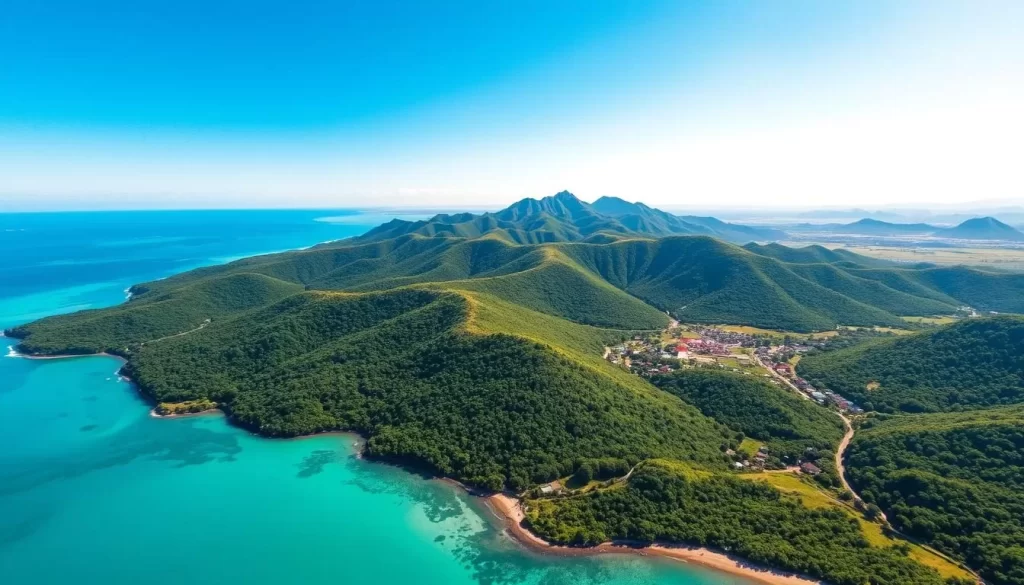
A Brief History of Timor-Leste
Timor-Leste has a complex history, having been a former Portuguese colony and later under Indonesian occupation. The country’s struggle for independence culminated in its recognition as a sovereign nation in 2002. Understanding this history is crucial to appreciating the country’s current cultural identity. To visit this emerging destination, travelers must comply with the visa requirements, which can be facilitated through the country’s diplomatic missions. The capital, Dili, serves as the gateway to experiencing Timor-Leste’s rich cultural heritage.
As you plan your visit, you will need to obtain a visa to enter the country. Upon arrival in the capital Dili, you will be immersed in the local culture, setting the stage for a memorable journey through this Southeast Asian gem.
Understanding Timor-Leste’s Cultural Landscape
Timor-Leste’s cultural landscape is a rich tapestry woven from its history, traditions, and geography. As a country with a complex past, Timor-Leste has developed a unique cultural identity shaped by various influences.
Portuguese and Indigenous Influences
The culture of Timor-Leste is a blend of Portuguese colonial legacy and indigenous traditions. This blend is evident in the country’s language, cuisine, and festivals. For instance, the cuisine of Timor-Leste draws on influences from South East Asia and Portugal. Many locals raise livestock, making pork, chicken, and goat popular proteins. You can also savor fresh seafood, root vegetables, and tropical fruits, which are staples in the Timorese diet. Coffee lovers can enjoy their morning coffee made with locally grown beans, as Timor-Leste is renowned for its high-quality coffee.
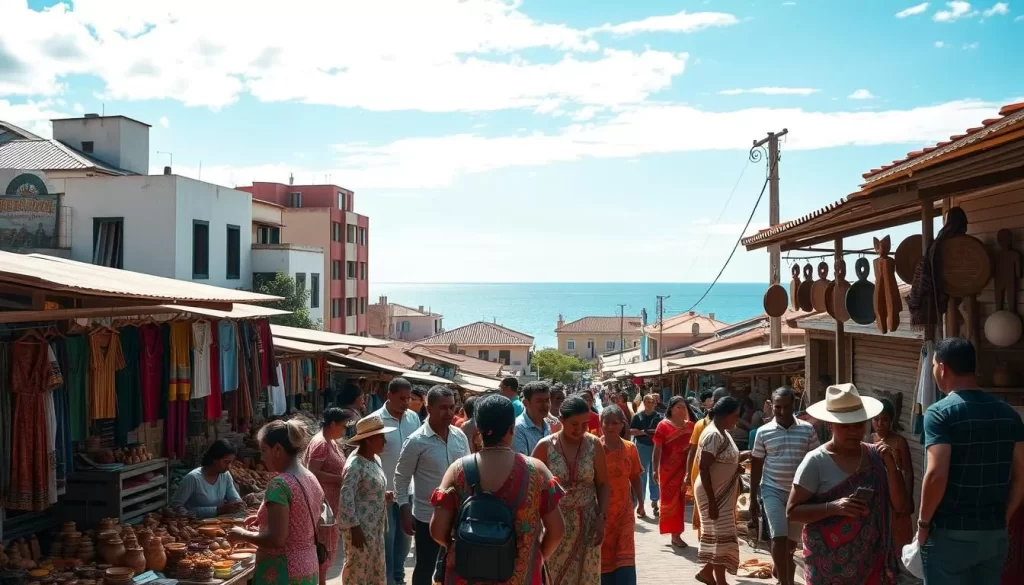
| Cultural Influence | Manifestation |
|---|---|
| Portuguese | Language, cuisine, architecture |
| Indigenous | Traditional practices, festivals, community bonding |
| Catholicism | Religious celebrations, feast days, processions |
The Role of Catholicism in Local Celebrations
As one of only two countries in Asia with a Roman Catholic majority, Catholicism plays a significant role in Timor-Leste’s cultural landscape. The country’s religious celebrations form an essential part of its festival calendar. You can experience the vibrant local celebrations, which often blend Catholic traditions with indigenous practices, creating a unique cultural experience. When planning your visit, ensure you have a valid visa to immerse yourself in the country’s cultural offerings and interact with the people.
With sufficient time to explore, you can gain a deeper understanding of Timor-Leste’s cultural heritage and enjoy the country’s renowned coffee. The country‘s cultural landscape is a testament to its rich history and diverse traditions.
Timor-Leste: Top Festivals to Check Out When Visiting
When planning your visit to Timor-Leste, timing is everything, especially if you’re eager to experience the country’s vibrant festivals. Timor-Leste is a nation with a rich cultural heritage, and its festivals are a testament to this. The country’s cultural calendar is dotted with various celebrations that offer a unique glimpse into its history, traditions, and values.
Festival Calendar Overview
Understanding the festival calendar is crucial for travelers who wish to immerse themselves in Timor-Leste’s culture. One of the most significant events is the Carnival de Timor, held annually in Dili, usually in April or May, depending on the rain season. This carnival, initiated by the Ministry of Tourism in 2010, is a celebration of fun, music, and multiculturalism. Participants, including locals, foreign minorities, and even embassies, parade through the streets in both modern and traditional costumes.
| Festival Name | Location | Time of Year |
|---|---|---|
| Carnival de Timor | Dili | April/May |
| Baucau Music Festival | Baucau | August |
| Dili International Film Festival | Dili | September |
Why Festivals Offer the Best Cultural Immersion
Participating in Timor-Leste’s festivals provides an unparalleled opportunity for cultural immersion. You get to see traditional music, dance, and costumes, all of which are integral parts of Timorese culture. The festivals are not just entertaining; they are also a window into the soul of the Timorese people. By attending these events, you can gain a deeper understanding of the local customs and way of life.
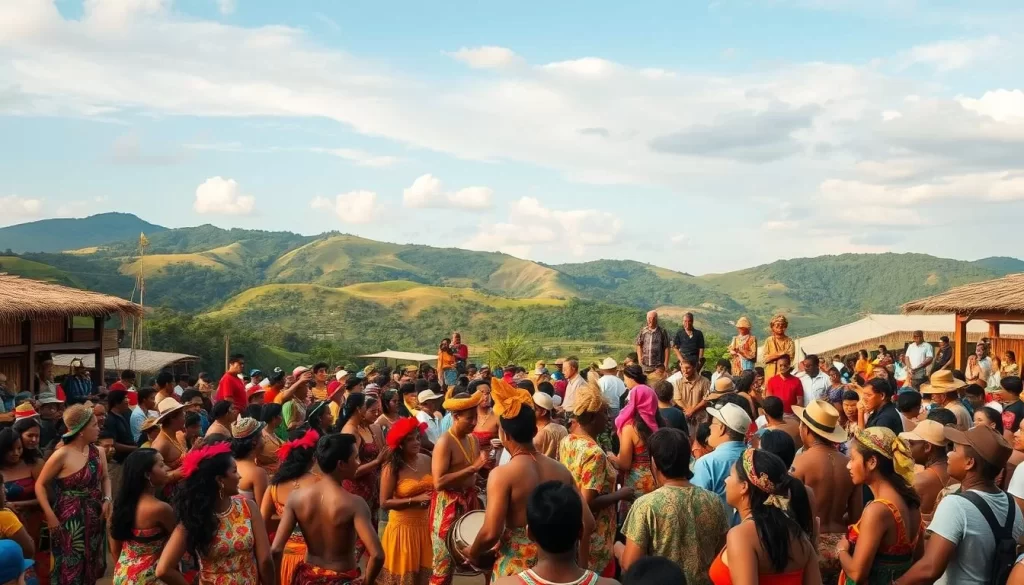
To make the most of your visit, it’s essential to plan ahead, including arranging your visa and understanding the duration of your stay. Timor-Leste offers various visa options that can accommodate different lengths of stay, allowing you to plan your visit around multiple festivals. This flexibility ensures that you can fully immerse yourself in the culture without feeling rushed.
By experiencing Timor-Leste’s festivals, you’re not just attending events; you’re engaging with the local culture in a meaningful way. So, when you plan your visit, be sure to check the festival calendar to catch one of these vibrant celebrations.
Carnaval: Timor-Leste’s Most Vibrant Celebration
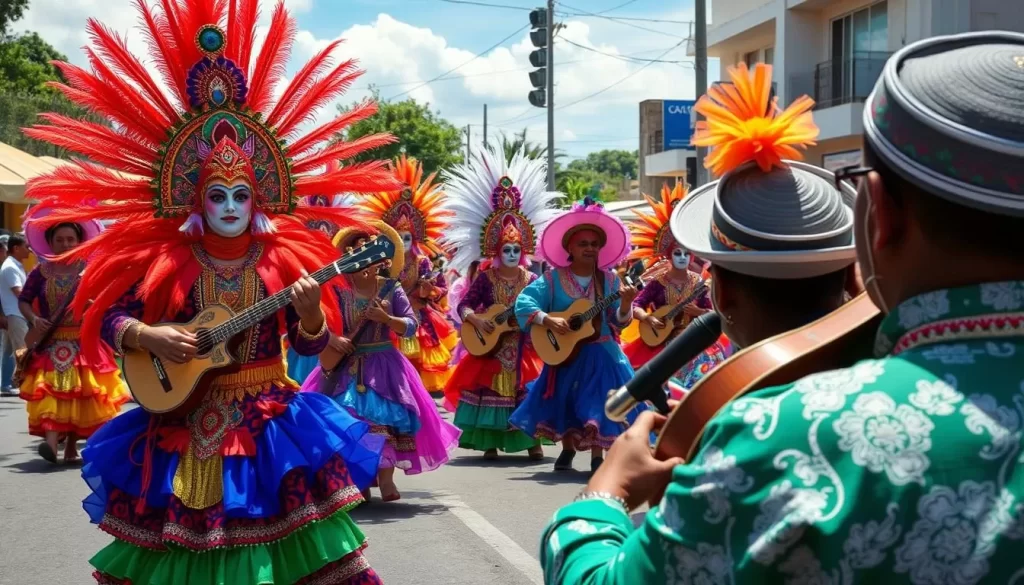
Timor-Leste’s Carnaval is a mesmerizing display of music, dance, and cultural heritage. This vibrant celebration typically takes place in February or March, right before Lent, and is a spectacle not to be missed.
The Carnaval in Timor-Leste is a reflection of the country’s rich cultural identity, influenced by its history and the blending of Portuguese and indigenous traditions. The festival brings together people from diverse communities for several days of festivities.
History and Cultural Significance
The origins of Carnaval in Timor-Leste can be traced back to the Portuguese colonial era, and over time, it has evolved to incorporate indigenous elements. This pre-Lenten celebration is significant because it showcases the country’s cultural expression and community solidarity.
Understanding the cultural significance of Carnaval is crucial to appreciating its impact on the local communities. It’s a time when people come together, putting aside their differences to celebrate their shared heritage.
What to Expect: Parades, Music, and Dance
During Carnaval, you can expect to be immersed in a world of color and sound. The festival features elaborate parades, traditional music performances, and dance competitions that reflect the country’s rich cultural tapestry.
The celebration typically lasts for a few days, with the main events including street performances and local food stalls. This is a fun and communal atmosphere where you can experience the authentic culture of Timor-Leste.
If you’re planning to attend Carnaval, it’s essential to check the visa requirements for Timor-Leste in advance, as this is a popular time to visit. Ensuring you have the necessary visa will allow you to fully enjoy the festivities without any hassle.
Experiencing Carnaval in Timor-Leste is a once-in-a-lifetime experience that offers a unique glimpse into the country’s vibrant culture. It’s a celebration that takes place over several days, leaving you with unforgettable memories.
Carnival de Timor: A Celebration of Multiculturalism
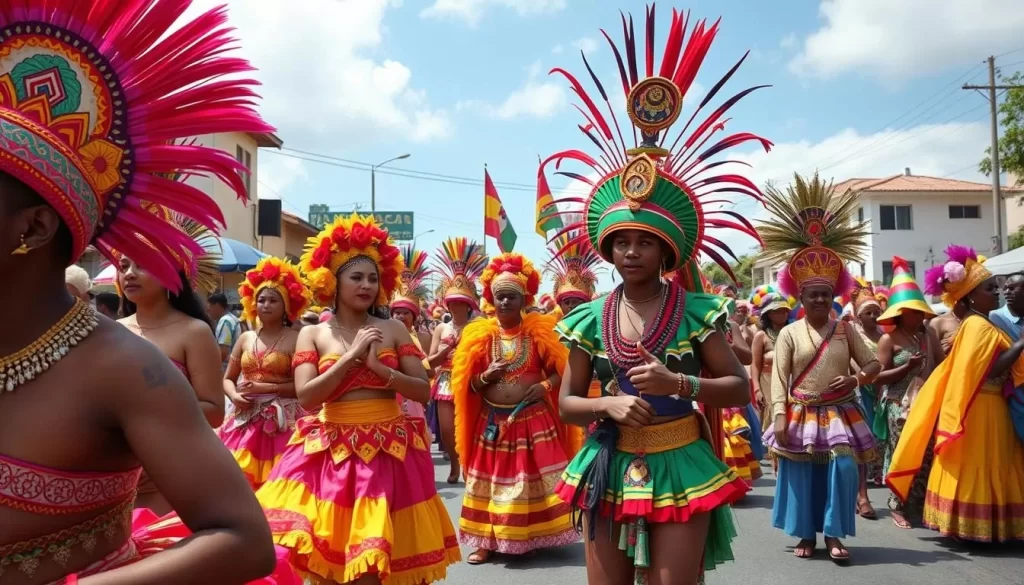
Every year, the city of Dili comes alive with the Carnival de Timor, a festival that beautifully blends tradition and modernity. Held in the middle of April, or sometimes May depending on the rain season, this event is a true reflection of Timor-Leste’s multicultural identity.
Origins and Evolution
Initiated by the Ministry of Tourism in 2010, Carnival de Timor was conceived as a celebration of fun, music, and multiculturalism. Over the years, it has evolved into a grand spectacle that attracts both locals and international visitors. The festival showcases the country’s rich cultural heritage, featuring both traditional and contemporary elements.
Highlights and Must-See Performances
The highlight of Carnival de Timor is the grand parade that winds through Dili, culminating at the Palacio do Governo. Participants, including embassies and local communities, don elaborate costumes, blending modern and traditional attire. The parade is accompanied by live music performances, and the best-dressed groups are awarded, making it a day of national pride and cultural expression.
As you plan your adventure around this vibrant event, consider the visa requirements and the opportunity to sample local coffee at the festival stalls. The carnival is a day of celebration that offers a unique insight into Timor-Leste’s cultural landscape, making it an unforgettable experience for all who attend.
Baucau Music Festival: Rhythms of the Island
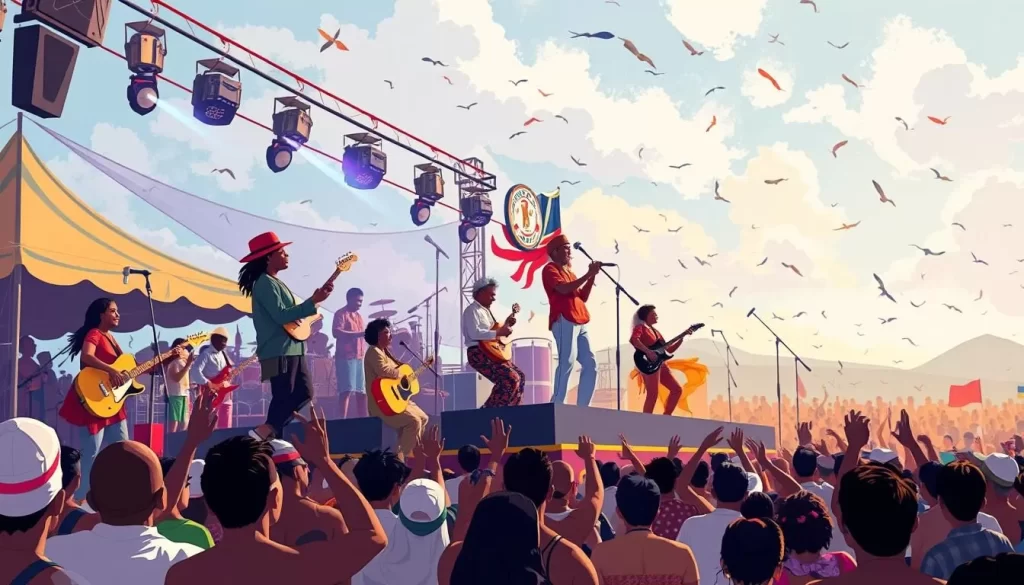
Baucau, the second-largest town in Timor-Leste, hosts a music festival that showcases the island’s cultural depth. You can experience the rich musical traditions of Timor-Leste at the Baucau Music Festival, where the air is filled with the sounds of traditional instruments and contemporary fusion styles. This event is a testament to the island’s evolving cultural identity.
Traditional and Contemporary Performances
The Baucau Music Festival features a diverse lineup of performances, blending traditional Timorese music with modern styles. You will witness the unique sounds of local instruments, such as the kobor and babadok, alongside contemporary fusion acts that reflect the country’s cultural evolution. The festival is a celebration of Timor-Leste’s musical heritage, offering you a chance to immerse yourself in the local culture.
Visitor Experience and Local Engagement
As a visitor, you are not just a spectator; you are an integral part of the festival. The event encourages cultural exchange through interactive workshops and communal celebrations, allowing you to engage with the local people and learn about their customs. You can also savor locally grown coffee varieties while enjoying the musical performances, blending the festival’s rhythm with the rich flavors of Timor-Leste’s coffee culture. When planning your visit, be sure to check the visa requirements and accommodation options in Baucau during the festival days to make the most of your experience.
Dili International Film Festival: Celebrating Cinema

The Dili International Film Festival is a testament to the growing cultural landscape of Timor-Leste’s capital, Dili. This event has become a significant attraction for cinema enthusiasts and filmmakers alike, turning Dili into one of Southeast Asia’s emerging cultural destinations.
Program Highlights and Screening Venues
The festival boasts a diverse program featuring films that address Timorese identity, history, and contemporary issues, alongside international selections. Screening venues range from modern theaters to unique outdoor locations throughout Dili, transforming the city into a vibrant cinematic hub. Visitors can enjoy a day-long celebration of cinema culture, with various films and discussions.
Networking Opportunities with Filmmakers
Attending the Dili International Film Festival requires understanding the visa requirements, as it attracts filmmakers from across borders. Once you’re there, coffee houses serve as informal networking hubs for attendees and filmmakers, fostering a sense of community. You can experience the rich cultural exchange and maybe even plan your next visit to this not-quite-bustling capital, enjoying a cup of coffee in one of its quaint cafes.
Lafaek Diak Festival: Honoring Timor-Leste’s Heritage
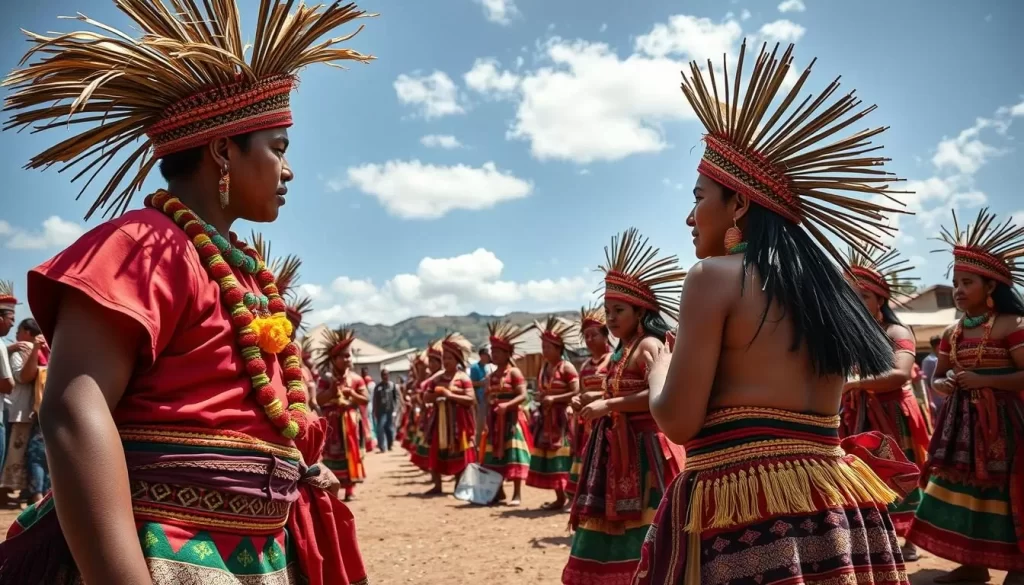
As you explore Timor-Leste, the Lafaek Diak Festival is an event that offers a deep dive into the country’s cultural identity. This festival is a celebration that honors the rich cultural heritage and traditional practices of the island.
Traditional Ceremonies and Rituals
The Lafaek Diak Festival features ancient ceremonies and rituals that connect modern Timorese to their pre-colonial roots. These traditional practices are an integral part of the festival, providing a unique glimpse into the country’s history and cultural significance. You will have the opportunity to witness coffee ceremonies, which play a special role in this festival, highlighting the island’s renowned coffee production.
Community Participation and Visitor Involvement
The festival strengthens community bonds within the country while offering visitors a glimpse into authentic cultural practices. As a visitor, you can participate in the celebrations, gaining a deeper understanding of Timor-Leste’s traditions. To attend this multi-day cultural celebration, you will need to cross the border into Timor-Leste and obtain the necessary visa. Planning your visit for several days will allow you to fully immerse yourself in the festival’s activities.
Religious Festivals and Celebrations
As you explore the rich cultural heritage of Timor-Leste, you’ll discover that religious festivals play a significant role in the country‘s identity. Timor-Leste is one of only two predominantly Catholic nations in Asia, making its religious celebrations unique and fascinating.
The country‘s religious festivals are a blend of Catholic and indigenous traditions, reflecting its complex history and cultural diversity. You can experience this vibrant cultural landscape by attending the various festivals held throughout the year.
Catholic Feast Days and Processions
Catholic feast days are an integral part of Timor-Leste’s religious calendar. During Holy Week and Christmas time, the country comes alive with elaborate processions and ceremonies. You can witness the devotion of the local people as they participate in these significant events, often on a special day of the year.
When planning to visit during these major religious festivals, it’s essential to understand the visa requirements. Timor-Leste offers various visa options for travelers, and checking the requirements in advance will ensure a smooth entry into the country. You should also be aware of the visa regulations to avoid any last-minute complications.
Indigenous Spiritual Celebrations
Apart from Catholic celebrations, Timor-Leste is also home to indigenous spiritual practices that continue to thrive on the island. These traditional ceremonies often blend animist beliefs with Catholic observances, creating a unique cultural tapestry. You can experience the rich spiritual heritage of Timor-Leste by attending these indigenous celebrations.
| Festival | Date | Description |
|---|---|---|
| Holy Week Processions | Variable dates | Elaborate processions and ceremonies during Holy Week |
| Christmas Celebrations | December 25 | Festive events and ceremonies marking the birth of Jesus Christ |
| Indigenous Spiritual Celebrations | Various dates | Traditional ceremonies blending animist and Catholic traditions |
Practical Travel Information for Festival Attendance
As you plan your trip to Timor-Leste for the vibrant festivals, it’s essential to understand the practical aspects of traveling to this Southeast Asian nation. Knowing the best times to visit, visa requirements, and how to get around will make your festival experience even more enjoyable.
Best Times to Visit for Festival Season
Timor-Leste hosts various festivals throughout the year, each with its unique charm. The best time to visit largely depends on which festival you want to attend. For instance, if you’re interested in the Baucau Music Festival, you’ll want to plan your trip accordingly. Generally, the dry season, from May to November, is considered the best time to visit, as it coincides with many of the country’s major celebrations.
Visa Requirements and Entry Procedures
Understanding the visa requirements is crucial for a smooth entry into Timor-Leste. Citizens of certain countries, including all Schengen Area countries, Cape Verde, Indonesia, Singapore, and Thailand, enjoy visa-free travel for specified periods. For others, a visa on arrival is available at Dili Airport or Dili Seaport for a fee of US$30, valid for 30 days. However, if you’re arriving by land, you’ll need to secure a visa in advance through an embassy or consulate. It’s also important to ensure your passport has at least two blank pages, as the visa on arrival stamp takes up one page.
When planning your trip, consider the visa application authorisation process if you need to obtain a visa before arrival. Checking with the relevant embassy or consulate for the most current requirements is advisable. Additionally, be aware that border regulations, including those at land border crossings, may have specific requirements, and “visa on arrival” is not available at these crossings.
Transportation Options Within Timor-Leste
Once you arrive, getting to the festival locations is relatively straightforward. Timor-Leste offers various transportation options, including public buses, private car rentals, and domestic flights. Public buses are an affordable way to travel, while renting a car provides more flexibility. For longer distances or quicker travel, domestic flights can be a convenient option. Planning your transportation in advance will help ensure you arrive at the festivals on time and enjoy the celebrations without any logistical worries.

By understanding these practical aspects, you’ll be well-prepared to enjoy the festivals Timor-Leste has to offer. From the vibrant parades to the cultural performances, your experience will be enriched by knowing you’re well-prepared for your trip.
Accommodation and Dining During Festival Seasons
To fully immerse yourself in Timor-Leste’s festival culture, you need to know about the best places to stay and the local food scene. As the festivals approach, the demand for accommodation in key areas increases, making it essential to plan ahead.
Where to Stay in Festival Hotspots
Discovering the right accommodation in Timor-Leste during festival seasons can be a challenge, but there are various options to suit different preferences. You can choose from boutique hotels in capital Dili or guesthouses in smaller towns that tend to fill up quickly during celebrations. Booking in advance is crucial, especially in west Dili, where many cultural events take place.
Here are some accommodation options to consider:
| Location | Type | Price Range |
|---|---|---|
| Dili | Boutique Hotels | $100-$300 |
| Smaller Towns | Guesthouses | $50-$150 |
| West Dili | Luxury Hotels | $200-$500 |
Sampling Local Cuisine at Festival Food Stalls
Timor-Leste’s cuisine is a delicious blend of Southeast Asian and Portuguese flavors, with popular dishes often featuring pork, chicken, and goat. During festivals, you can sample authentic Timorese cuisine at food stalls, where fresh seafood, root vegetables, and tropical fruits are also on offer. Don’t forget to try the locally grown coffee, which is renowned worldwide.
When dining at festival food stalls, it’s essential to have cash on hand upon arrival, as many vendors do not accept credit cards. You can enjoy a variety of dishes, from traditional meals served with rice to exotic fruits and freshly brewed coffee made from locally grown beans.
Exploring the local cuisine and staying in the right accommodation will enhance your festival experience in Timor-Leste. Be sure to plan ahead for both to make the most of your visit.
Cultural Etiquette and Responsible Tourism
The country of Timor-Leste is known for its warm hospitality, and by respecting local customs, you can ensure a positive experience for both yourself and the community. As you plan your trip to this beautiful nation, it’s essential to understand the cultural nuances that will make your visit even more enjoyable.
Respecting Local Customs During Celebrations
When attending festivals and celebrations in Timor-Leste, modest dress is advisable, particularly in smaller towns and villages. This predominantly Catholic country values respect for tradition, and dressing appropriately is a sign of respect for the local culture. You should also be prepared to participate respectfully in ceremonies and events.
- Learn a few basic Tetum phrases to engage with the local people.
- Understand the significance of local customs and traditions.
- Be mindful of your attire to show respect for the local way of life.
Photography Guidelines and Interaction Tips
When it comes to photography, it’s crucial to ask permission before taking pictures of people or sacred rituals. Some ceremonies may be off-limits for photography, so it’s always best to check with your hosts or local guides. Additionally, engaging with the local community over a cup of coffee can be a great way to build connections and learn more about their way of life.
For a smooth trip, remember to check the visa requirements and plan accordingly. Timor-Leste is embracing tourism as part of its development, and your visit can contribute to the local economy.
By being a responsible tourist and respecting local customs, you can have a meaningful and enriching experience in this beautiful country, enjoying the vibrant culture and warm hospitality of its town.
Conclusion: Embracing the Festive Spirit of Timor-Leste
Timor-Leste’s festivals offer a unique glimpse into the heart of this young nation, showcasing its community spirit and cultural traditions. As you plan your trip to this Southeast Asian country, understanding the practical aspects of traveling to Timor-Leste is essential. This includes obtaining the right visa to enter Timor-Leste, navigating the international airport, and managing the local currency, which includes both US dollar notes and Timorese coins.
Timing your visit to coincide with the festival season can significantly enhance your travel experience. You can explore beyond the celebrations to visit nearby beaches and other destinations. Various services are available to travelers, including restaurants offering local food, transportation options between towns, and it’s advisable to have cash rather than relying on credit cards.
To ensure a smooth entry into Timor-Leste, it’s crucial to understand the visa arrival procedures, land border crossing options, and visa application authorisation through embassy or consulate services. This knowledge will make your journey into this part of the island hassle-free at any time of year.
As you conclude your journey through Timor-Leste’s festivals, you’ll be left with lasting memories of this emerging destination’s warm hospitality and vibrant cultural traditions. The experience will be a memorable part of your travels, highlighting the country’s rich cultural heritage and community spirit.
In Timor-Leste, the blend of traditional and contemporary celebrations offers a unique cultural experience. Whether you’re exploring the local coffee culture or enjoying the local cuisine, your visit will be filled with enriching experiences. As you end your trip, you’ll carry with you the memories of the days spent in this beautiful country, making your journey truly unforgettable.
The above is subject to change.
Check back often to TRAVEL.COM for the latest travel tips and deals.
